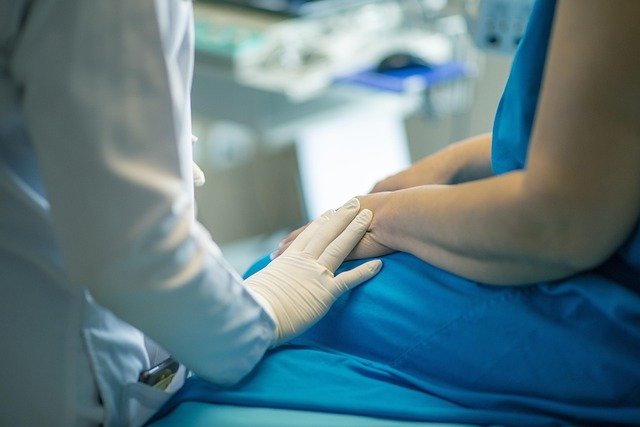Finding Paid Clinical Trials for Abdominoplasty Surgery
Abdominoplasty, commonly known as a tummy tuck, is a surgical procedure that removes excess skin and fat from the abdominal area while tightening underlying muscles. For individuals considering this procedure, participating in paid clinical trials can provide access to cutting-edge treatments while potentially reducing costs. Clinical trials for abdominal surgery offer opportunities to receive advanced care from leading medical professionals while contributing to medical research that benefits future patients.

How do I find paid clinical trials near me?
Finding paid clinical trials in your local area requires utilizing multiple resources and databases. The most comprehensive starting point is ClinicalTrials.gov, a database maintained by the National Institutes of Health that lists ongoing studies worldwide. Use search filters to specify your location, condition, and study type. Additionally, contact major medical centers and universities in your area, as they frequently conduct research studies. Many hospitals have dedicated research departments that can provide information about current and upcoming trials for abdominoplasty and related procedures.
What are the paid clinical trials for abdominal surgery?
Paid clinical trials for abdominal surgery encompass various research areas, including new surgical techniques, post-operative care methods, pain management protocols, and innovative medical devices. These studies might focus on minimally invasive abdominoplasty procedures, advanced suturing materials, or recovery enhancement protocols. Some trials investigate combination procedures that include abdominoplasty with other cosmetic surgeries. Research institutions often study long-term outcomes, patient satisfaction rates, and complication reduction methods. Payment amounts vary significantly, ranging from covering travel expenses to providing substantial compensation for time and participation.
Understanding participation criteria for clinical trials
Participation criteria serve as guidelines to ensure patient safety and study validity. Common requirements include specific age ranges, typically between 18-65 years, overall good health status, and realistic expectations about surgical outcomes. Many trials require participants to have stable weight for several months before enrollment and commit to long-term follow-up appointments. Exclusion criteria often include pregnancy, certain medical conditions like uncontrolled diabetes, previous abdominal surgeries, or current smoking habits. Some studies specifically target patients with particular conditions, such as post-pregnancy abdominal separation or significant weight loss patients.
Benefits and risks of joining abdominoplasty trials
Participating in clinical trials offers access to innovative treatments and expert medical care at reduced or no cost. Participants receive thorough medical evaluations and close monitoring throughout the study period. However, risks include potential unknown side effects from experimental procedures or devices. The trial protocol may be more restrictive than standard care, requiring additional appointments and specific post-operative guidelines. Some studies use control groups, meaning participants might receive standard treatment rather than the experimental approach. Understanding these factors helps make informed decisions about trial participation.
Global trends in abdominoplasty research worldwide
Worldwide research in abdominoplasty focuses on improving patient outcomes through advanced surgical techniques and enhanced recovery protocols. European studies emphasize minimally invasive approaches and combination procedures, while Asian research centers investigate techniques suitable for different body types and cultural preferences. American institutions lead in developing new medical technologies and post-operative care innovations. International collaboration has increased, with multi-center trials providing diverse patient populations and broader applicability of results. Recent trends include investigating the psychological benefits of abdominoplasty and developing personalized surgical approaches based on individual patient anatomy.
Cost considerations and clinical trial compensation
Understanding the financial aspects of clinical trials helps in making informed decisions. While traditional abdominoplasty can cost between $6,000-$12,000, clinical trial participation often significantly reduces these expenses. Many trials cover all surgical costs, hospital fees, and follow-up care. Additionally, participants may receive compensation for time, travel, and inconvenience.
| Trial Type | Compensation Range | Coverage Included |
|---|---|---|
| Device Testing Trials | $500-$2,000 | Surgery, follow-up care, device costs |
| Technique Comparison Studies | $300-$1,500 | Surgical fees, hospital costs, monitoring |
| Long-term Outcome Studies | $200-$1,000 | Follow-up visits, imaging, assessments |
| Pain Management Trials | $400-$1,800 | Medications, monitoring, additional treatments |
Prices, rates, or cost estimates mentioned in this article are based on the latest available information but may change over time. Independent research is advised before making financial decisions.
Making informed decisions about trial participation
Before enrolling in any clinical trial, thoroughly research the study protocol, principal investigators, and institution reputation. Schedule consultations with multiple research teams to compare opportunities and requirements. Review informed consent documents carefully and ask questions about potential risks, expected outcomes, and long-term commitments. Consider seeking second opinions from independent medical professionals not involved in the research. Evaluate your personal circumstances, including work schedules, family commitments, and ability to attend required follow-up appointments. Remember that participation is voluntary, and you can withdraw from studies at any time while maintaining access to standard medical care.
Participating in paid clinical trials for abdominoplasty surgery offers unique opportunities to access advanced treatments while contributing to medical knowledge. Success in finding appropriate trials requires thorough research, careful evaluation of eligibility criteria, and realistic expectations about the commitment involved. With proper preparation and understanding of the process, clinical trial participation can provide excellent medical care while advancing surgical techniques for future patients.
This article is for informational purposes only and should not be considered medical advice. Please consult a qualified healthcare professional for personalized guidance and treatment.




